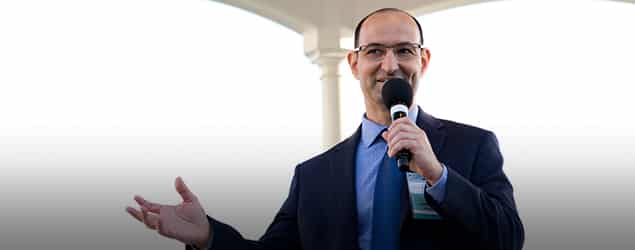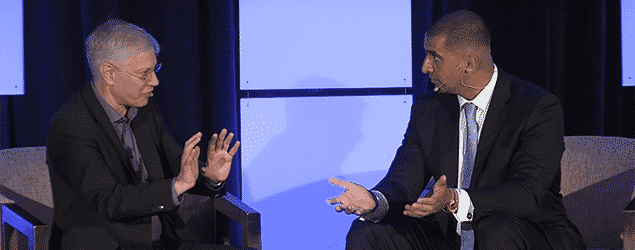#OCON2017 Meet Aaron Smith

Aaron Smith, philosopher and instructor at the Ayn Rand Institute, will be speaking at Objectivist Summer Conference 2017 in Pittsburgh, Pennsylvania.
This year, Smith will give a talk titled “Understanding the Appeal of Stoicism.” Stoicism is “a philosophy that originated in ancient Greece and was very popular during the Roman imperial period,” says Smith. The talk is especially relevant given #OCON2017’s focus on productive heroes since Stoicism has emerged as a philosophy that many in leadership roles find appealing.
“The Stoics offer insights that many people find useful in managing their lives,” explains Smith. “Today, elements of Stoic philosophy are being emphasized and packaged in a way that really resonates with people. I want to look at what is so appealing about Stoicism, and what we can learn by examining that appeal.”
We caught up with Aaron Smith to ask him about life, OCON and philosophy.
How did you come to ARI?
At my first OCON, Yaron Brook convinced me to join ARI’s Objectivist Academic Center. So, while working on my Ph.D., I also took courses on philosophy from Onkar Ghate and on writing from Keith Lockitch. Several years later, when I was teaching in academia, ARI approached me about an opportunity to teach at the Institute.
What are you most looking forward to at OCON?
Interacting with the students. I’ve spent most of my life teaching young people. Before teaching at ARI, I was a philosophy professor, and before that, a gymnastics coach. You know that feeling when fall semester starts and new students flood the campus and there are 50 people in the Starbucks line and you’re cutting across the quad to get to meet your next class? Well, I love that.
What makes a great talk?
New and useful integrations or shifts in perspective that help you think about things more clearly.
How do you cure writer’s block?
By remembering that most “writing problems” are actually thinking problems. If I “block,” I set aside my writing and try to get clearer on the issues I’m writing about, and what I’m trying to accomplish. Usually, I can eventually spot the confusion or conflict that’s getting in the way. Ayn Rand’s The Art of Nonfiction has many useful insights in this regard.
What did you want to be when you grew up?
I wanted to be Simon Le Bon — the lead singer of Duran Duran.
What’s on your desk?
My desk is messy right now — it’s strewn with graded papers and final exams by my students in the Objectivist Academic Center.
Best OCON moment?
Harry Binswanger teaching me how to properly tie my necktie at my first OCON.
What three things are you currently loving?
- Teaching in the Objectivist Academic Center alongside Onkar Ghate.
- Re-reading Epictetus’ Discourses.
- The seared akamutsu at my favorite sushi restaurant.



